Sheep are grazing ruminant animals. So, it only makes sense that grasses make up most of a healthy primary diet for them. But adding some healthy treats once in a while should do no harm to them; the treats might just make them happy.
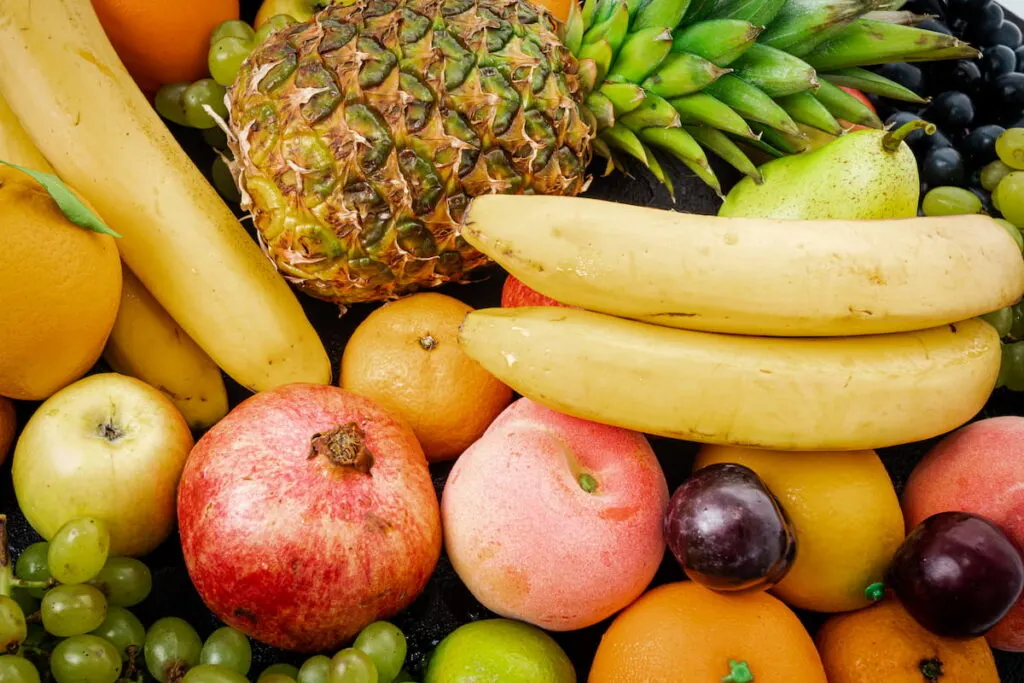
There is a wide range of treats for animals out there. But not all of them are suitable for every animal. This also applies to sheep; not all treats are healthy for sheep.
In this article, we compile a list of 19 healthy treats your sheep will love. We also discuss the health benefits the treats offer and talk about some treats to avoid in sheep.
1. Apples
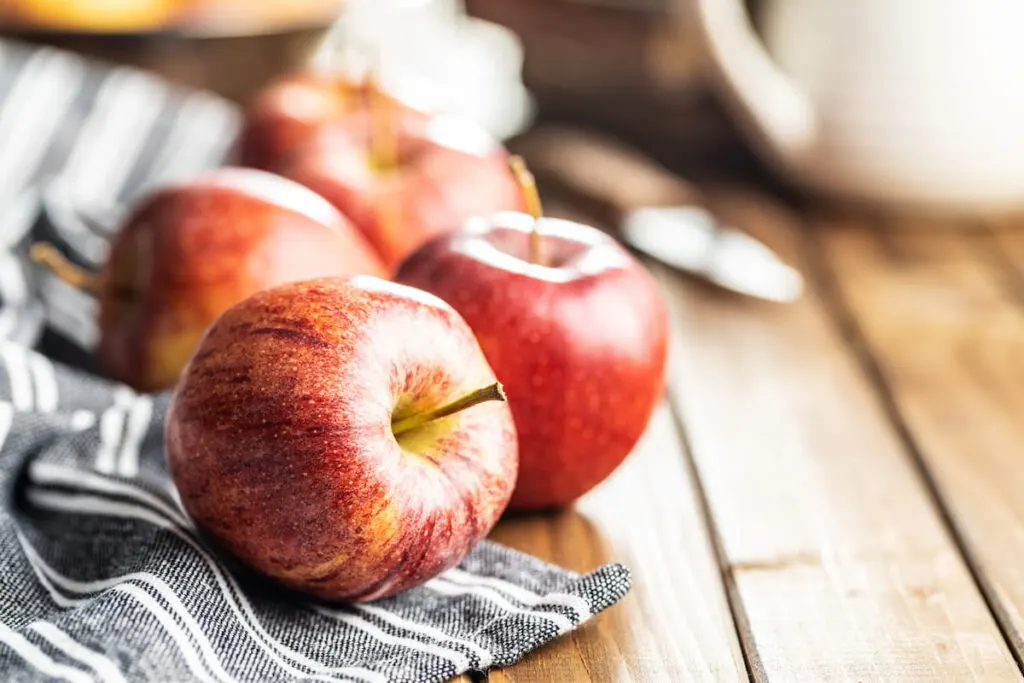
Sheep love apples, and in moderate amounts, apples are a healthy treat for them.
Apples offer various vitamins and minerals, including potassium, vitamin A, magnesium, and vitamin C. They also contain antioxidants, which help with general wellbeing, and fiber, which improves gut health.
Besides the above, apples can also balance the pH of a sheep’s stomach.
2. Bananas
Sheep can eat bananas in moderate amounts. And since bananas are a great source of potassium, they are a very healthy option for sheep.
Generally, ruminant animals need more potassium than non-ruminant animals. One reason for this is that potassium promotes the functions of rumen microbes.
Besides potassium, bananas offer a fair amount of fiber. So, they may just help your sheep’s gut health.
3. Barley
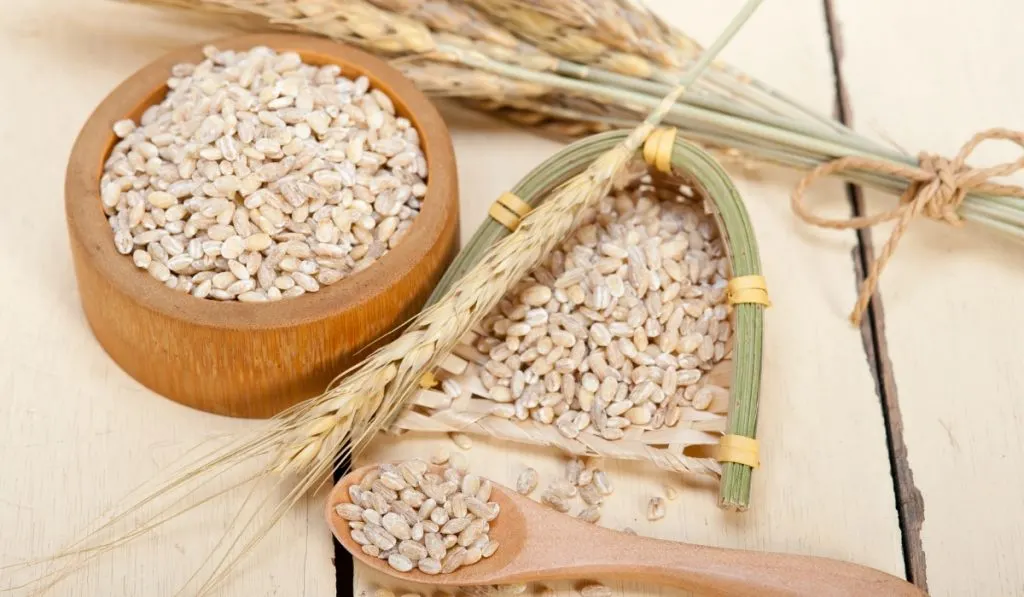
Barley can be used as an alternative to hay in drought. It is a good source of extra dietary energy in a sheep’s diet, and it also offers some protein. Sheep can also get calcium, vitamin E, and phosphorus from barley.
4. Blueberries
Besides being generally tasty, blueberries are a low-calorie treat for sheep. They are also a good source of fiber, antioxidants, and various trace elements.
Blueberries are particularly rich in flavonoids, a type of antioxidant. And this can help prevent oxidative stress in sheep.
5. Carrots
Carrots in moderate amounts are safe for sheep. Besides being palatable, carrots contain ample amounts of vitamin A.
Vitamin A helps sheep improve their immunity, fertility, and skin. It also maintains night vision while promoting other physiological functions in the body of a sheep.
Vitamin A is usually stored in the liver, so your sheep do not have to consume carrots regularly to get enough of it.
Besides vitamin A, carrots offer potassium, folate, fiber, and vitamin K to sheep. So, there is a lot to gain from giving your sheep carrots moderately.
6. Celery
Irregular celery treats are okay for sheep. But be cautious because frequent or excessive celery treats may precipitate photosensitization.
While celery stalk is okay for sheep, never let them consume its roots or seeds.
You may read more about this here.
7. Cucumbers
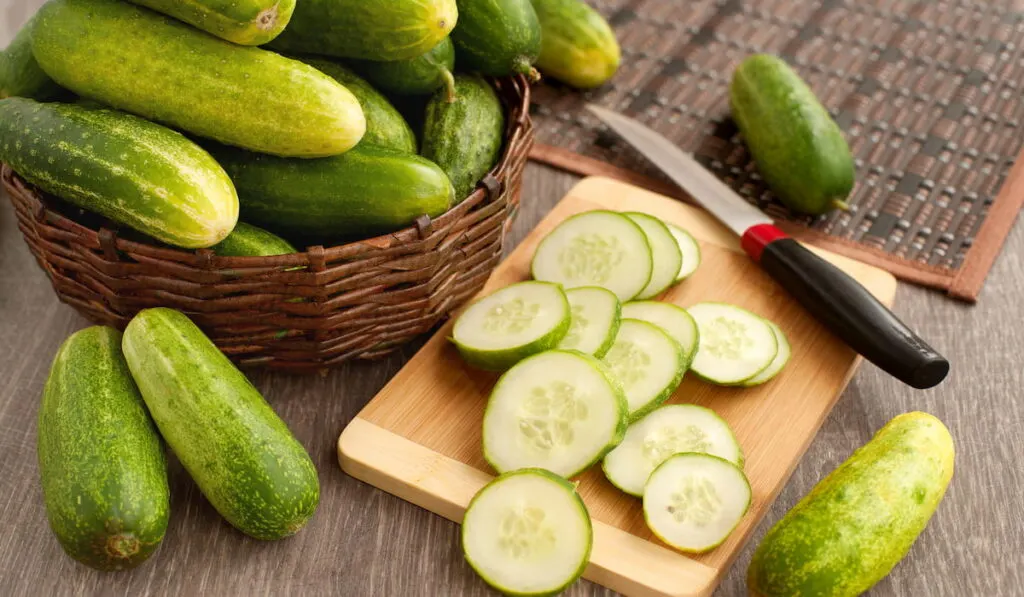
Sheep love cucumbers. Thankfully, the water and fiber content of cucumbers are of great benefit to the gut health of sheep.
8. Grapes
Do not pass the chance to offer your sheep grape treats. Grapes are chock-full of nutrients that are beneficial to sheep.
Interestingly, in New Zealand, sheep owners sometimes just let their sheep roam in vineyards for grapes.
When giving grapes to your sheep for the first time, offer minimal amounts. If they do not react adversely to the treat, you may let them have a little more over time. Try not to go beyond one handful of grapes twice a week.
9. Lettuce
Lettuce may not offer much to sheep in the way of nutrients. However, its water and fiber content will promote digestibility.
The water in lettuce also helps to mitigate the heat on hot days.
Learn more about this by checking this article.
10. Corn
While maize is okay for sheep, you should ensure you give it to them moderately. Maize, being a rich source of calcium, can cause urinary calculi when consumed excessively.
Besides that, avoid giving cracked corn to your sheep (especially adults) as it may precipitate acidosis.
11. Mangoes
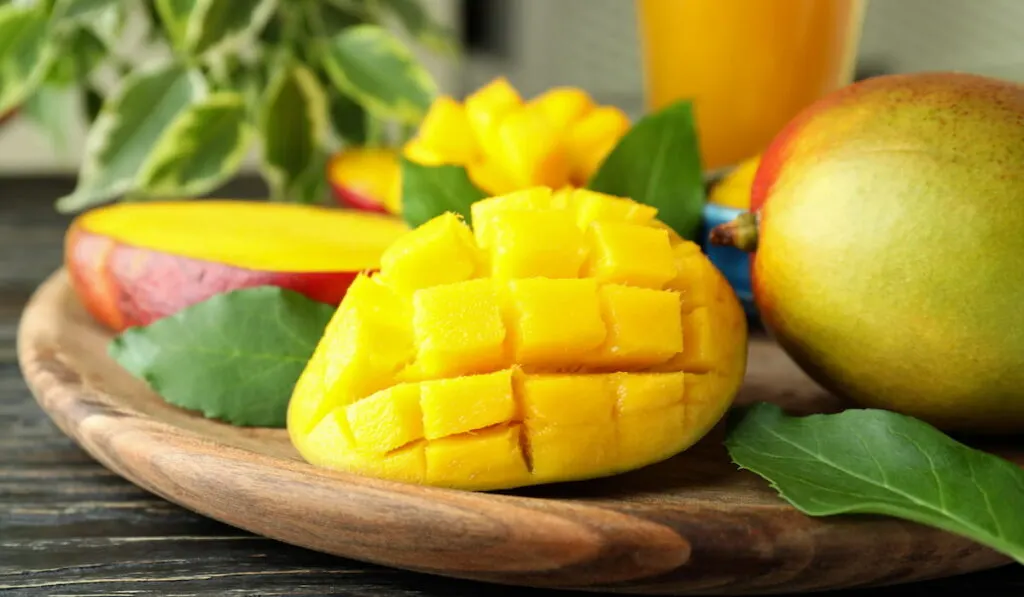
Sheep can eat mango fruits, and they can get various vitamins, minerals, and antioxidants from eating them. However, you should only let them take little to moderate amounts of mangoes.
Mangiferin, a compound in mangoes, is possibly toxic in cattle in elevated amounts. And there is the possibility of a similar phenomenon in sheep. So, giving them get limited quantities of mango is safer.
12. Oats
In some areas, oats are considered the best grains to giving sheep. This is all thanks to its relatively high fiber content compared to some other grains.
With their high fiber content, oats are less likely to cause a stomach upset in your sheep. Instead, they may even promote gut health.
Besides the higher fiber content, oats have a high protein content too. Plus, they can also be used to start lambs on feed.
13. Peas
It appears that lambs may like peas very much. Thankfully, peas are not only likable, but they are also healthy.
Peas offer fiber to sheep. They also give about the same energy as corn and almost thrice the protein.
One group of sheep that peas are particularly beneficial to are late-gestation ewes. They can greatly benefit from the extra protein that peas offer.
14. Pears
Pears promote immunity and are great for sheep. They also contain potassium, protein, fiber, vitamin K, vitamin C, and many other vitamins. So, they can help improve your sheep’s overall health.
15. Pumpkin
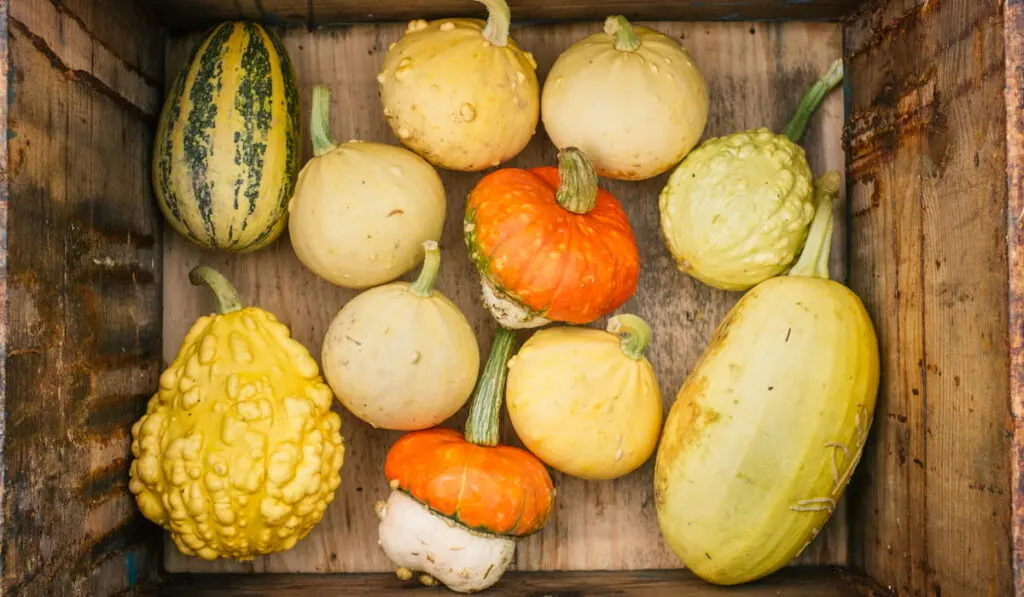
Pumpkins are also a healthy treat for sheep. They contain elevated amounts of vitamin A and vitamin C, which are beneficial to the healthy development of coat and skin.
Sheep may break soft and small-sized pumpkins on their own. But you should break the pumpkins into bite size pieces before offering them to your sheep.
16. Ripe Tomatoes
You can give your sheep tomato treats. As long as the tomatoes are ripe and limited, your sheep should be fine.
Never let your sheep consume the stem or leaves of a tomato plant. Similarly, your sheep should not eat unripe tomatoes.
Tomato leaves, stems, and unripe fruits contain solanine. Solanine is an alkaloid that can make sheep (and many other animals) sick. In some cases, it can cause death.
Excess amounts of tomatoes can lead to calcium imbalance in sheep. This is why you should only give them in limited quantities.
17. Sorghum
Sorghum can be fed as a treat to sheep, and it can also be given as fodder. It serves as a source of various B-vitamins, including vitamins B1, B2, and B5.
Sorghum also contains potassium, iron, and a lot of fiber – all of which contribute to the wellbeing of sheep.
18. Sunflower Seeds
Sunflower seeds are safe for sheep to eat as treats. But besides that, they are very beneficial to the health of sheep.
Sunflower seeds offer vitamin E and a couple of B-vitamins to sheep. They are a rich source of various minerals, including zinc and magnesium.
Like most of the other treats we have discussed so far, sunflower seeds are a good source of fiber. So, they also promote digestion in sheep.
19. Watermelon
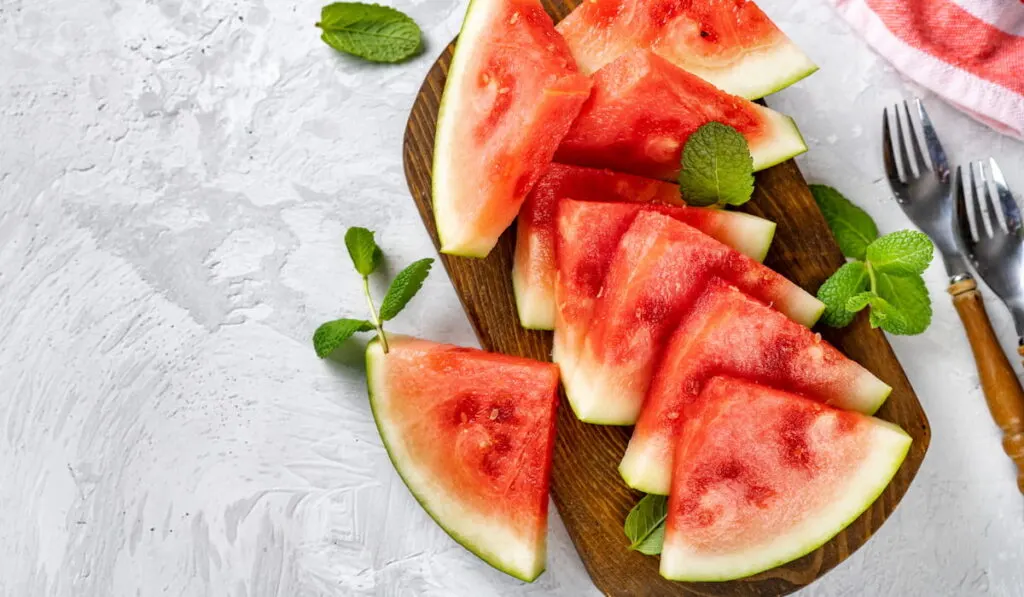
In the same way watermelon hydrates humans, it hydrates sheep. This makes it a perfect treat for hot days.
Besides hydration, watermelon offers vitamins B1, B5, and B6. It also contains vitamin A, magnesium, and potassium.
Treats to Avoid Giving Sheep
Never give the following food items to your sheep:
- Avocado
- Onions
- Garlic
- Potato
- Rhubarb
- Unripe tomato
- Unripe eggplant
- Chocolate
- Turnip
- Orange
- Lemon
- Lime
- Grapefruit
- Tangerine and citrus fruits generally
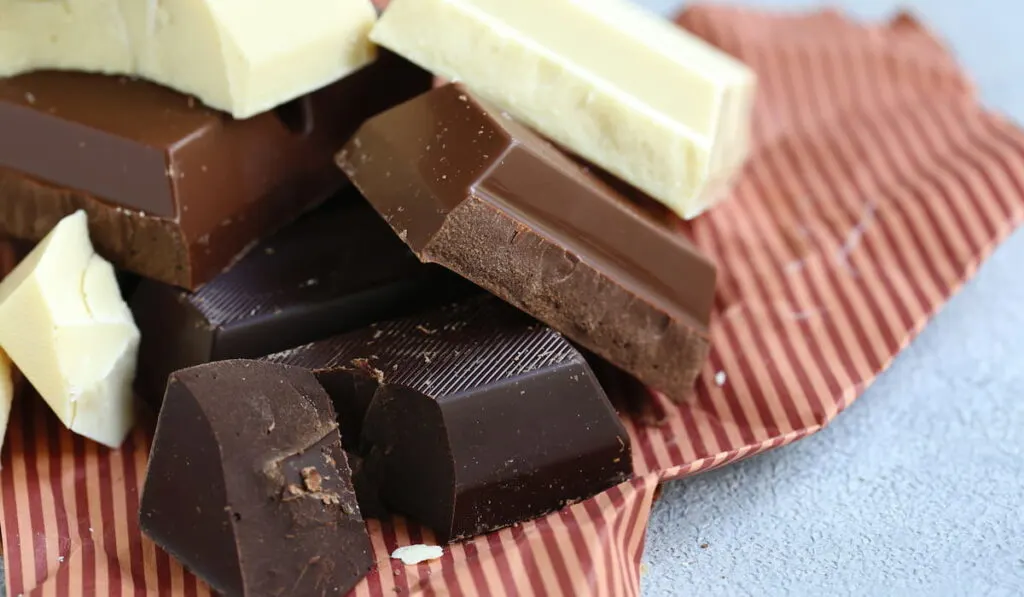
Things to Note
- When introducing a treat into your sheep’s diet, start slowly. Let the sheep have minimal amounts first. Then assess their reaction. If they do not react badly to the treat, you may increase the quantity gradually.
- Ensure that any treat you give your sheep does not make up more than 10% of their diet.
- Treats that can cause choking should be broken down into bite sizes before they are given to sheep.
- Be extra watchful when giving commercially prepared treats to your sheep. Some of these products contain enough copper to cause copper toxicity in sheep. If you are in doubt about a commercially prepared treat, reach out to the manufacture. Better still, reach out to your veterinarian.
- Avoid goat treats and horse treats; many of them contain copper levels that are toxic to sheep.
Resources
- https://www.daf.qld.gov.au/business-priorities/agriculture/disaster-recovery/drought/managing-recovery/managing/grain-sheep-drought
- https://opensanctuary.org/article/things-that-are-toxic-to-sheep/
- https://opensanctuary.org/article/daily-diet-treats-supplements-for-sheep/
- https://farmhouseguide.com/can-sheep-eat-apples/
- http://www.ipni.net/publication/bettercrops
- https://thetilth.com/can-sheep-eat-bananas/
- https://agricsite.com/can-sheep-eat-barley/
- https://agricsite.com/can-sheep-eat-blueberries/
- http://www.flockandherd.net.au/cattle/ireader/vit-a-deficiency.html
- https://farmhouseguide.com/can-sheep-eat-carrots/
- https://www.homesteadingtoday.com/threads/anything-you-should-not-feed-sheep-as-treats.248865/
- https://farmhouseguide.com/what-fruits-can-sheep-eat/
- https://animals.mom.com/grass-fed-vs-grass-finished-beef-12266421.html
- https://discuss.farmnest.com/t/mango-leaves-as-fodder-for-sheep/1042/2
- https://www.accidentalsmallholder.net/forum/sheep/feeding-oats-to-sheep/
- https://openprairie.sdstate.edu/cgi/viewcontent.cgi?article=1008&context=sd_sheepday_1983
- https://www.fwi.co.uk/news/lots-of-benefits-if-youll-just-give-peas-a-chance
- https://askinglot.com/can-sheep-eat-peas
- https://www.sheepusa.org/blog/newsmedia-sheepindustrynews-pastissues-2011-october2011-fieldpeaspossible
- https://www.healthline.com/nutrition/benefits-of-pears
- https://www.britishwool.org.uk/10-interesting-facts-about-pumpkins
- https://www.vetpoultry.com/blogs/barn-talk-livestock-health-and-nutrition/can-pets-and-livestock-eat-leftover-halloween-pumpkins
- https://u.osu.edu/beef/2017/08/02/feeding-tomatoes-to-livestock
- https://www.farmersweekly.co.za/animals/sheep-goats/feeding-your-sheep-sorghum/
- https://www.healthline.com/nutrition/sorghum
- https://backyardhomesteadhq.com/can-sheep-eat-sunflower-plants-and-seeds/
- https://www.healthline.com/nutrition/watermelon-health-benefits
